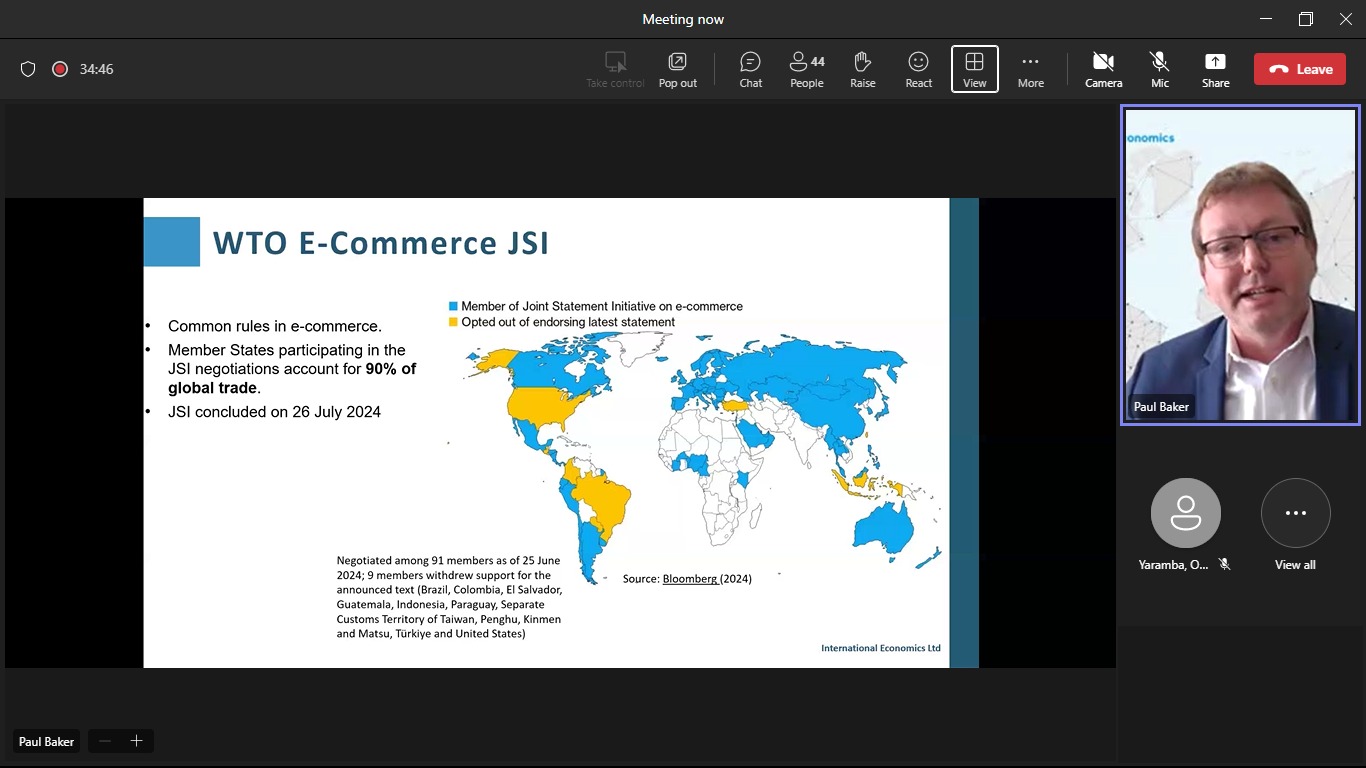August 28, 2024, – The East African Business Council (EABC), in partnership with Deutsche Gesellschaft für Internationale Zusammenarbeit (GIZ-EAC) and other regional stakeholders, organized a pivotal roundtable to bring together key e-commerce stakeholders such as leading e-commerce platforms, delivery service providers, payment service providers and international organizations to discuss the ongoing implementation of regional e-commerce strategies and their impact on the sector across the East African Community (EAC)
In his opening remarks, Mr. Adrian Njau, Acting Executive Director of EABC, emphasized the vital role of e-commerce in driving regional development within the EAC. He highlighted key initiatives, such as cross-border e-commerce, digital payments, financial inclusion, and sustainable practices aimed at strengthening the digital economy and facilitating smoother cross-border trade. Mr. Njau stressed the importance of understanding private sector experiences in cross-border e-commerce to identify both successes and challenges, which are crucial for crafting more effective growth strategies. He proposed the establishment of an EAC e-commerce forum to enhance collaboration among stakeholders and foster a supportive environment for e-commerce. He further noted that unlocking the full potential of e-commerce in East Africa requires a unified approach, ongoing dialogue, and strategic partnerships to create a vibrant and inclusive digital ecosystem.
Ms. Angelique Umulisa, Principal Trade Officer at the EAC Secretariat, discussed the transformative impact of digital technology on global business operations and underscored the substantial potential for e-commerce growth within the EAC. With increasing internet penetration and a youthful population exceeding 60%, East Africa is well-positioned to capitalize on e-commerce opportunities. She pointed out that advancements in mobile connectivity, broadband, and the One-Area Network have stimulated the growth of tech start-ups and entrepreneurial ventures, thereby enhancing communication and financial integration across the region. However, Ms. Umulisa also highlighted ongoing challenges, such as affordability issues, skill gaps, limited broadband infrastructure, and inconsistent electricity access. To address these challenges, the EAC has adopted a ten-year Regional E-Commerce Strategy with 60 prioritized measures focused on consumer protection, cybersecurity, data protection, and payment system interoperability. She emphasized the need for capacity building to enhance digital skills among government officials and the private sector and supported the creation of an e-commerce forum to foster stakeholder engagement in policy discussions.
Mr. Odo Yaramba, Digital Trade Advisor at GIZ, highlighted the importance of a diverse stakeholder ecosystem in e-commerce services. He underscored the need for a collective strategy and unified perspectives on various e-commerce topics, especially in light of the recent resurgence in e-commerce activities in the region following the COVID-19 pandemic. Mr. Yaramba called for enhanced collaboration among stakeholders to further develop e-commerce in East Africa.
The roundtable highlighted the necessity for strategic collaboration, capacity building, and regulatory alignment to drive e-commerce growth and economic development in the East African region, ensuring it remains competitive in the evolving global digital economy.
In closing, the EABC committed to hosting and nurturing the e-commerce business community platform in the EAC, ensuring that the region remains competitive in the evolving global digital economy.


